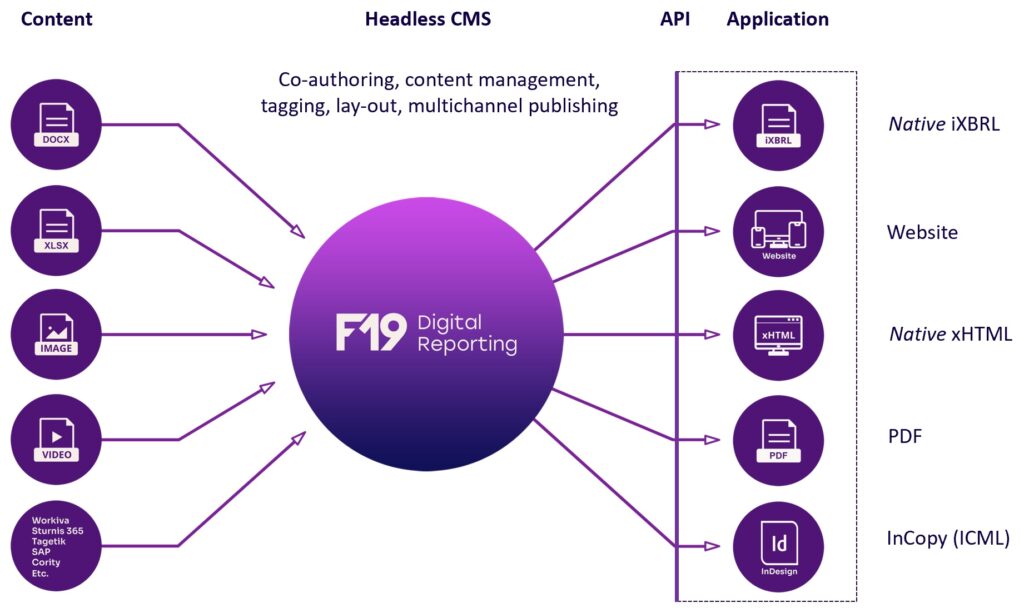Headless CMS
The future of multichannel publishing
In the not-so-distant past, traditional content management systems (CMS) were the go-to for website development. They enabled content input, management, and direct publishing to websites. Yet, as the appeal of the “headless CMS” grew, this monolithic structure began to pose significant challenges for both developers and CMS users.
The old guard: Traditional Content Management Systems
The classic CMS setup tightly knits content with presentation. Essentially, the look, feel, and content of the website were intertwined. While this allowed for relatively easy publishing, it brought along several disadvantages:
- Inflexibility
Developers were often boxed into using specific templates and structures defined by the CMS, limiting their creative freedom and capacity to innovate. - Content Duplication
If you needed to present the same content on different platforms or formats (like a mobile app), you often had to recreate it, leading to potential inconsistencies. - Dependency Issues
The presentation layer was dependent on the content layer. Changes to one often necessitated changes to the other, leading to longer development cycles.
Amplifying the challenge: multichannel publishing
The digital world we live in is diverse. From websites to apps, Inline XBRL publications to PDFs, content today needs to be fluid, adaptable, and consistent across platforms. Traditional CMSs, with their rigid structures, amplify the issues stated above when trying to publish across multiple channels. A single piece of content, when tailored to fit the specifics of a website, might not translate seamlessly into a PDF or an Inline XBRL publication, leading to extra work, inefficiencies, and inconsistencies.

A breath of fresh air: The headless CMS approach
Enter the headless CMS – a system where content creation is decoupled from content presentation. Here’s how it’s revolutionising the multichannel publishing landscape:
- Platform Agnosticism
A headless CMS simply provides content as data over an API. This means that developers can use any technology or platform to present this content, be it a website, mobile app, an Inline XBRL publication or a PDF. - Uniformity Across Channels
With a central repository for content that feeds into various outputs, there’s no need for duplication. The content remains consistent, irrespective of where it’s viewed. - Swift Iterations
Developers can make changes to the presentation layer without impacting the content and vice-versa. This accelerates development cycles and fosters innovation. - Future-Proofing
As new content channels emerge, a headless CMS can seamlessly integrate and serve content to them without major overhauls.
Final thoughts
In a dynamic digital age, where content needs to be omnipresent and consistent, sticking to traditional CMSs can be a roadblock. The challenges are amplified when publishing across multiple channels. Headless CMSs, with their flexibility, scalability, and efficiency, clearly pave the way forward.
If you’re looking to adapt to the changing tides of digital publishing, now’s the time to consider going headless. Embrace the future; it’s headless, multichannel, and remarkably efficient.
Is your annual reporting ready for the future?
As regulations become increasingly stringent, and stakeholder expectations rise, annual financial and non-financial reporting will grow more complex. Fortunately, innovative software solutions are emerging to transform reporting into a positive experience for your team and stakeholders.
With the right Digital-First tools, you can seamlessly integrate ESEF and CSRD compliant XBRL tags and publish your reports in multiple appealing formats, including mandatory iXBRL, PDF, dynamic websites, or InDesign. This ensures compliance while enhancing corporate communication.
Learn more about how F19 can empower your organization to create the annual report of the future using our cloud-based, Digital-First reporting platform.
